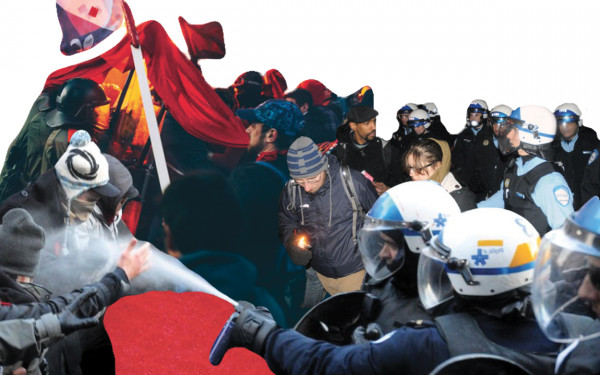CSU opens Recovery and Wellness Community Centre
The centre will respond to the long standing demands for addiction recovery services
Students at Concordia can finally access recovery services for addiction through the Concordia Student Union’s new peer-driven centre.
The Recovery and Wellness Community Centre is currently offering online meetings. The RAWCC office hopes to have physical open hours during October, their website will be updated with dates and hours.
The centre’s main service being offered are the “all-recovery” meetings. These peer-led group recovery meetings are open to all students no matter their stage of recovery.
“We’ll also be offering meetings for people who share particular affinities and identities, for example an LGBTQA+ group or a group that talks about experience with a specific substance,” said RAWCC coordinator Rosie McDonald. “Facilitators will welcome the attendees and let everyone know about our group guidelines/code of conduct, then ask if there are any topics anyone would like discussed. Once a topic is chosen, everyone will take turns speaking on it.”
Along with the meetings, the workshops being offered this semester through Zoom include monthly trauma-informed yoga/movement sessions, a workshop on herbal medicine for recovery, harm reduction and overdose prevention training, regular creative writing sessions, and a book club.
“We want this to be a place where people support each other through and past potentially tumultuous relationships with substance use, and taking those first steps to even identifying that need for support can be really intimidating and isolating,” McDonald added.
The idea for the centre was created during the 2018-2019 mandate when former CSU executive Michèle Sandiford saw a lack of services for students in recovery. “In the spring of 2019, they put in an incredible amount of work identifying the needs of students in recovery and with experience of addiction at Concordia, how those needs were failing to be met, and what could feasibly be offered to fill the gaps,” said McDonald.
The centre was built on research from the CSU Report on Addiction and Peer-Support written by Erin Campbell, a former Concordia student. The project was then delayed during the 2019-2020 mandate due to the pandemic.
“We want this to be a place where people support each other through and past potentially tumultuous relationships with substance use, and taking those first steps to even identifying that need for support can be really intimidating and isolating.” — Rosie McDonald
The new academic and advocacy coordinator at the CSU, Hannah Jamet-Lange, pushed for the project to continue. The student-run organization, The Recovery Taskforce, was the backbone for the work needed to create the RAWCC because of the feedback they received from Concordia students. Their main role was receiving feedback from students in recovery and how they wanted to receive care. They are not currently involved with the centre's operations.
There has been an outpouring of support for the new centre. Chabad Lifeline is a Montreal-based Addiction Care Center, who wants to lend a hand in helping train peers to support each other during their journeys to recovery. Their focus is to offer services that provide anonymity and impartial care for all types of addiction. “We have individual counseling, group therapy, group works that are twelve steps processes, peer mentoring, it is free and immediate help,” said Chabad Lifeline director Benjamin Bresinger. He urges counselors to have the proper training to be able to offer services to get to the route of the addiction.
The RAWCC is currently in the process of choosing from the long list of students who applied to help with the centre.
“The response from students wanting to be involved with the centre has been overwhelmingly positive. So many people have reached out with interest in becoming a peer facilitator,” said McDonald.
McDonald said they wanted to choose peers with lived experience who themselves identify as being in recovery or have experience with addiction. “We are taking steps towards ensuring all students who participate can feel as safe as possible. These steps include rigorous training for all facilitators, confidentiality, and the possibility of anonymity in meetings,” said McDonald.
Students can access the RAWCC meetings by joining their mailing list. Emails will entail news on upcoming workshops and ways to register.

_900_600_90.jpg)





_600_375_90_s_c1.jpg)